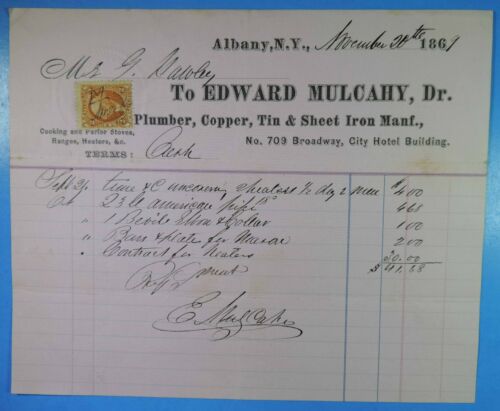
A Massachusetts electrician can be either a Journeyman, or Master. These professionals must hold a license and have general liability insurance. In addition, they must have a proper apprenticeship. They should be proficient in electrical systems for buildings. An electrician master is responsible for overseeing stage lighting fixtures' installation, connection, focus, and coordination.
Exemptions for Journeyman License
Massachusetts has a requirement that electricians have a Journeyman license. To be licensed, an electrician must have at least 8,000 hours of experience and pass an open book exam. You must also have $500,000 insurance coverage and a minimum of one year's experience as an electrician. Costs for obtaining a license vary depending on the specialty and where you live.
To become an electrician in Massachusetts, you need to pass an exam that is divided into two parts: a general industry practice part and an application part. The test covers a broad range of legal and business issues. There are also additional requirements for electricians in Massachusetts, depending on the type of license that you are seeking. You must have at most one year experience as a Class-B journeyman electrician to become master electrician. An education program is an option for those who don't have enough experience.

Master electrician license
Professional electricians in Massachusetts must renew their license at least every three year. For your license to remain current, you must complete 21 hours worth of continuing education. At least 15 hours of this education must include the Massachusetts Electrical Code. There are two separate examinations to take. You can take both parts on the same day or schedule them to be taken separately. Both exams are computer-generated, open-book. The minimum passing score for both exams is 70 percent.
The state's examination is required in order to be granted a master-electronics license in Massachusetts. After you pass the exam, you will get a certificate. This certificate will specify your name and that you've passed the exam. This certificate will allow you to work as a systems technician.
Apprenticeship requirements
You must complete an apprenticeship before you can become a Massachusetts licensed electrician. To qualify, you need to have at least 8,000 hours of paid work under the supervision of a licensed journeyman, and 600 classroom hours from an approved school. You can start schooling while you are still in your apprenticeship. Or, you might begin earlier. You should consult with the Massachusetts Department of Labor and Training to see what kind of experience they accept as credit toward your training.
Massachusetts apprenticeship programs generally take around five years. This program includes both evening classes and paid work. For an apprenticeship program you must be at the least 18 years old. An aptitude test must be passed to prove your skill in the trade. You can find accredited apprenticeship programs in Massachusetts through the Associated Builders and Contractors of Massachusetts's Merit Apprenticeship Program or through its affiliate, Gould Construction Institute.

General liability insurance
General liability insurance is required for electricians working in Massachusetts. This will protect you from possible lawsuits. You can get this insurance through either your employer or a general insurance agent in Massachusetts. An independent agent is a quick way to obtain quotes from many Massachusetts insurance companies in a short time. Aside from their expertise, they can help you compare quotes.
The risks that electrical contractors face include electrocution, fires, and electrocution. Working in tight spaces can cause serious injuries. In addition, expensive tools and equipment may be lost or damaged. This insurance can protect your business and assets.
FAQ
How much does it cost for you to apply for building permits?
It varies depending on the state and the complexity of your proposal. It also depends on whether your application is for permission to construct or extend an existing house. The application process can take several months, so be prepared to wait until everything is finalized.
What is a service agreement?
A Service Contract Agreement (SCA), is an agreement between the parties to provide services. The SCA describes the services that are being offered, how they should be performed, who is responsible for their payment, and when they should begin. The agreement also specifies what happens to the other party if they breach their obligations.
Can I cancel my contract at any point?
Yes - but this must be done within 14 days of signing your contract. Your contract can be ended by giving notice in writing up to seven days before the deadline. However, if you don't give enough notice, you may still owe the contractor money for work already carried out.
What is my SCA coverage?
Your SCA will detail the scope of work, including the time it will take, how many materials are needed, what equipment is required, and whether special permits are necessary.
Who pays for the service?
Your SCA will indicate who is responsible in paying for the service. You may be able to file a claim for compensation against the court if the service provider fails to pay in full.
Are there any additional things I need to consider?
Yes. Please check your local laws for details about what projects you are allowed to do and the conditions that you need. Some states require you to get approval from the council to build. Other states say that you only need to notify them of your plans. To find out their position on the matter, check with your local authorities.
What is a standard contract form?
A template is used to create contracts. These templates contain all the essential elements needed to create a contract. They include the date, place, time and names of the parties.
Standard contract forms can be modified to suit individual clients. For instance, some companies offer their standard contract forms.
These forms may not be right for everyone. These forms can save you time and effort.
You might want to consider using one of these standard contract forms.
Statistics
- (1) Except as provided in paragraphs (a)(4) and (a)(8) of this section, if the estimated amount of the contract or subcontract is $10 million or more, the contracting officer shall request clearance from the appropriate OFCCP regional office before- (acquisition.gov)
- (1) Ascertain the extent to that offers are based on the payment of overtime and shift premiums; and (2) Negotiate contract prices or estimated costs without these premiums or obtain the requirement from other sources. (acquisition.gov)
- While we offer all our high-quality services at competitive prices, we know that many who need our services are on fixed incomes, so we offer a 10 percent discount for seniors and military members. (homeservicecontractorsinc.com)
- (ii) Name, address, and telephone number of each proposed first-tier subcontractor with a proposed subcontract estimated at $10 million or more. (acquisition.gov)
- Reasonable late fees go up to 25% per year on unpaid sums. (lawdepot.com)
External Links
How To
What should a service arrangement include?
A Service Agreement (SA) is essential to any business relationship. It defines what you want from each other, and how you will get it. The SA also specifies when and where you expect each party to fulfill its contractual obligations.
The following are key elements for a successful SA
-
Both parties must agree on the scope and required services.
-
Particulars of the payment terms, including delivery dates and start dates.
-
A project cost agreement.
-
Additional charges such as VAT and other fees may apply.
-
Discuss any other matters.
-
Who will be responsible if something goes wrong with the job?
-
How disputes will be settled
-
What happens if one party breaches the contract.
-
What happens in the event of a dispute.
-
When will the contract become effective?
-
What happens if a party doesn't perform.
-
How long will it take to pay invoices
-
Who pays for things such as travel expenses?
-
Where the money comes.
-
What happens if a client changes his mind?
-
What happens when the supplier doesn’t show up.
-
Who has permission to view the site during construction
-
What happens if the client cancels the project?
-
What happens if the product malfunctions?
-
What happens if a manufacturer refuses to provide parts?
-
What happens if the equipment breaks down.
-
What happens if a project takes longer than expected?
-
What happens if you don't complete the work within the set timeframe?
-
What happens to the project if it isn't up-to-standard?
-
What happens if the cost overruns.
-
What happens to the materials if they are not delivered on-time?
-
What happens if the material arrives damaged?
-
What happens if the products are not up to standard.
-
What happens when the job is cancelled before completion?
-
What happens if the company goes bankrupt?